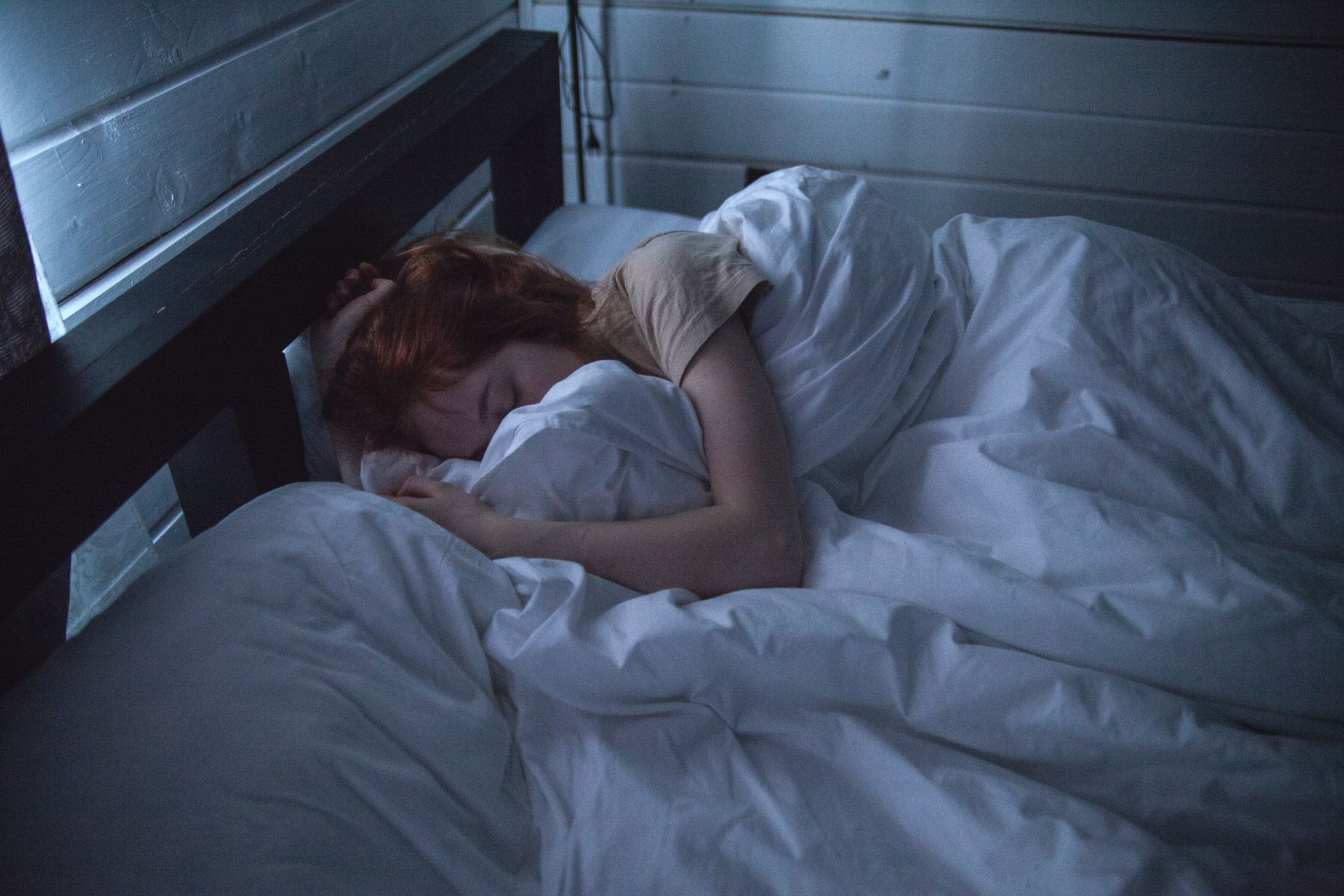
Over the last twenty years, research has uncovered the crucial connection between adequate sleep and its effects on good health and emotional functioning.
Did you know?
- Humans are the only mammals that deliberately delay sleep.
- The prefrontal cortex is the first part of the brain affected by those who are sleep deprived. Decision making and problem-solving is hindered as a result of this sleep deprivation.
- Sea otters hold hands while they sleep so they don’t drift away from each other
- 37.9% of people reported to unintentionally fall asleep during the day or at work in the past 30 days.
- When we are dreaming, it is comparable to psychosis; we believe we are flying, falling, and/or fighting. Whether we remember it or not, we are also regulating our mood and consolidating our memories. This happens when we are in the REM sleep stage of sleep.
- A newborn infant typically sleeps 17 hours a day.
- Good sleep likely reduces one’s risk of developing Dementia. A study of mice conducted by Maiken Nedergaard at the University of Rochester in New York, suggests that while we are awake our neurons are packed tightly together, but when we sleep, some brain cells deflate by 60%, widening the spaces between them. These intercellular spaces are dumping grounds for the cell’s metabolic waste – notably a substance called beta-amyloid which disrupts the communication between neurons and is closely linked to Alzheimer’s disease.
- According to the U.S. Centers for Disease Control and Prevention, more than 80 million adults in America are chronically sleep-deprived, meaning they sleep less than the recommended minimum of seven hours of sleep a night.
- Giraffes sleep less than five hours a day.
- China is the most sleep-deprived country in the world.
- Whales and dolphins literally fall half asleep because each side of their brain takes turns so they can come up for air.
- Animals will die of sleep-deprivation before they die from starvation.
- On Monday after a daylight-saving time change in the U.S., there is a 24% increase in heart attacks compared to other Mondays. On this day, there is also an increase in fatal car crashes.
- Pain hurts more in people who are sleep deprived.
- Little brown bats sleep 20 hours a day.
- Melatonin is a hormone that helps regulate our daily biological rhythms.
- According to Chiara Cirelli, a neuroscientist at Wisconsin’s Institute for Sleep and Consciousness, sleep-deprived suspects held by police will confess to anything in exchange for rest.
The American Academy of Pediatrics recommends infants 4-12 months old should sleep 12 to 16 hours per day (including naps) on a regular basis to promote optimal health. Children 1-2 years old should sleep 11 to 14 hours daily (including naps). Children 3-5 years of age should sleep 10 to 13 hours (including naps) on a daily to promote optimal health. Children 6-12 years of age should sleep 9 to 12 hours and teenagers should sleep 8 to 10 hours per day.
Are you getting enough sleep? Here are a few suggestions to fall asleep:
- Avoid naps
- Keep your bedroom on the cool
- Keep your bedroom as dark as possible
- Go to bed and get up at the same time every day
- Use your bed for only sex and sleep
- Six hours before bed, avoid all caffeine, energy drinks and nicotine
- One hour before bed, avoid all screens, computers, cell phones, TV, etc.
- Don’t eat or drink a lot before you go to bed
- Do not look at the clock, your phone, or watch
- If you are still awake after fifteen minutes, get out of bed, wait until you are tired again and you should have more success falling asleep
How well do you know sleep facts?
Take this Sleep Quiz to find out!
Over the last twenty years, research has uncovered the crucial connection between adequate sleep and its effects on good health and emotional functioning.
Which country is the most sleep-deprived in the world?
- China
- U.S.
- Japan
How many hours does a newborn infant sleep?
- 22 hours
- 17 hours a day
- 15 hours
Who dreams?
- Everyone
- Those with hidden fears
- Those who practice mindfulness
What animals hold hands while they sleep?
- Sea otters
- Monkeys
- Meerkats
How many people reported unintentionally falling asleep during the day or at work in the past 30 days?
- 28.5%
- 30.2%
- 37.9%
According to the U.S. Centers for Disease Control and Prevention, how many adult Americans are chronically sleep-deprived, meaning they sleep less than the recommended minimum of seven hours of sleep a night?
- More than 80 million
- More than 70 million
- More than 60 million
Which mammal deliberately delays sleep?
- Elephants
- Humans
- Horses
Does pain hurt more or hurt less in people who are sleep-deprived?
- More
- Less
What hormone helps regulate our daily biological rhythms?
- Serotonin
- Thyroxine
- Melatonin
Which animals literally fall half asleep?
- Whales
- Bears
- Lions
On Monday after a daylight-saving time change in the U.S., there is an increase in heart attacks compared to other Mondays. What is that percentage increase?
- 11%
- 18%
- 24%
According to Chiara Corelli, a neuroscientist at Wisconsin’s Institute for Sleep and Consciousness, sleep-deprived suspects held by police will do what in exchange for rest?
- Become extremely aggressive
- Confess to anything
- Fake passing out
When we are dreaming, it is comparable to psychosis; we believe we are flying, falling, and/or fighting. Whether we remember it or not, we are also regulating our mood and consolidating our memories when we are in what stage of sleep?
- Stage 1 Non-REM sleep
- REM sleep
- Stage 2 Non-REM sleep
Animals will die of sleep deprivation before they die from what?
- Starvation
- Dehydration
- Overexposure to the sun
What mammals sleep 20 hours a day?
- Koala bears
- Little brown bats
- Giant armadillos
What animal sleeps less than five hours a day?
- Giraffe
- Mouse
- Squirrel
The prefrontal cortex is the first part of the brain affected by those who are sleep deprived. What is hindered as a result of this sleep deprivation?
- Decision making and problem-solving
- Speech
- Fine motor skills
Answers: 1. 1., 2. 2., 3. 1., 4. 1., 5. 3., 6. 1., 7. 2., 8. 1., 9. 3., 10. 1., 11. 3., 12. 2., 13. 2., 14. 1., 15. 2., 16. 1., 17. 1.

Suzanne W. Keenon MA, LCPC
Suzanne W. Keenon is a Licensed Clinical Professional Counselor who sees individuals, couples, and families at Fox Valley Institute. She can be reached at 630-718-0717 ext 212 or at suzanne@fvinstitute.com. For immediate assistance to schedule an appointment, please connect with one of our Client Care Specialists at 630.718.0717, ext. 240.
Resources:
Finkl, M., (2018), The Science of Sleep. National Geographic
Pevzner, H., (2019), The New Science of Sleep. Psychology Today
Center for Sleep Medicine, https://www.sleepmedcenter.com
American Academy of Sleep Medicine Education (from the American Academy of Sleep
Medicine): http://www.sleepeducation.org/
National Healthy Sleep Awareness Project (from the American Academy of Sleep Medicine, http://sleepeducation.org/healthysleep
American Sleep Association: https://www.sleepassociation.org/
American Academy of Sleep Medicine, www.aasmnet.org
National Sleep Foundation, Email: nsf@sleepfoundation.org, www.sleepfoundation.org



